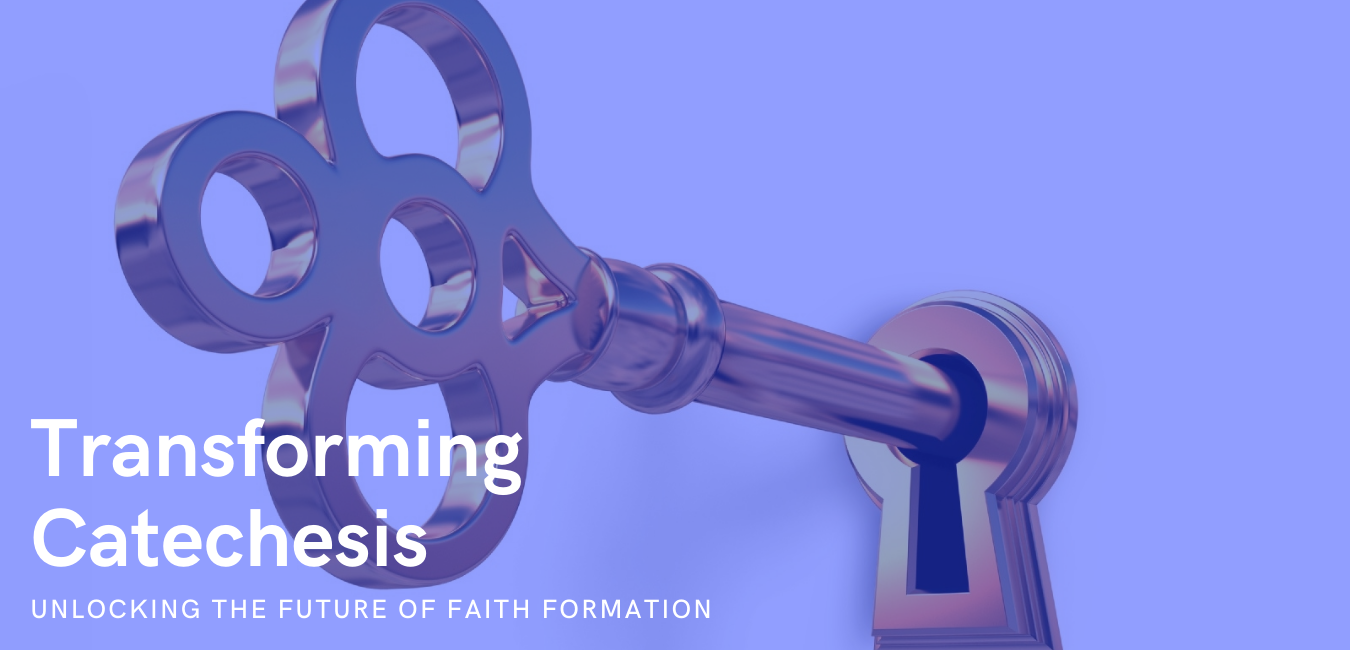 Tucked elegantly within the hustle and bustle of Autumn is an otherwise insignificant third Thursday of November. Almost hidden between Halloween and Christmas is the one day set aside to give thanks for our country: those who established it, and those who enjoy the freedom it offers. Perhaps, as one who shares the Good News of the Lord, with an attitude of gratitude it is appropriate to also pause and reflect on those who established our beautiful faith tradition and our own role as parish catechetical leaders, catechists, and religious educators.
Tucked elegantly within the hustle and bustle of Autumn is an otherwise insignificant third Thursday of November. Almost hidden between Halloween and Christmas is the one day set aside to give thanks for our country: those who established it, and those who enjoy the freedom it offers. Perhaps, as one who shares the Good News of the Lord, with an attitude of gratitude it is appropriate to also pause and reflect on those who established our beautiful faith tradition and our own role as parish catechetical leaders, catechists, and religious educators.
Thanksgiving Reflection for Catechists
Freedom
Jesus came to set the captives free (Luke 4:18). The English Pilgrims sought the New World because above all, they wanted freedom. Isn’t it interesting that Christians use the term “pilgrim” for those tracing the footsteps of Jesus, the Apostles, or other faithful Christians?
From what am I searching freedom? How effective has my search been? What else might I be able to do during the next few weeks? In my classroom, how do I appreciate my students as pilgrims in need of freedom? How might I better help them to find it?
Feast
Jesus is said to always either be on his way to a meal, enjoying a meal, or coming from a meal! Family and community life is centered around eating. We eat not only to take in nourishment, but also to offer ourselves to those around us whom we dearly love. Christians may also recall the Last Supper when Jesus and the Apostles experienced an extraordinary breaking of the bread. Did they realize that Jesus was instituting the Holy Eucharist? Eucharist is the Greek word for thanksgiving to God. The Pilgrims came together with their new friends, the Native Americans, to celebrate the harvest with a great feast, giving thanks for a year of blessing.
How and with whom will I celebrate this Thanksgiving? Will I participate in the feast of Our Lord as well as the feast at the family table? How might I offer myself to my loved ones while together? In what ways do I appreciate my session with students as a celebration or feast? How might we “break bread” together opening ourselves up to one another? How can we better recognize the gift we have of our faith?
Friendship
“No one has greater love than this, to lay down one’s life for one’s friends” (John 15:13). Jesus makes the ultimate sacrifice but what are we to do for our friends and family? Ultimately, laying down our lives is to offer all we are to those we love. To “welcome” relationship. It means to spend time, to share our thoughts, hopes, and dreams. We offer our struggles, receive support and offer it when we can. That is true friendship. In the New World, Samoset, a Native American, entered the Plymouth settlement and said, in English, “Welcome Englishmen.”
How well do I instill friendship within my relationships? Do I mostly give, or take? Do I skirt some people because they make me uncomfortable? As catechists, how and how well do I welcome those in my class? Do I invest myself with each person, or do I always speak to the class? Have I offered myself as a friend as well as a teacher?
Gratitude
Ultimately, Thanksgiving is about the attitude of gratitude. We have been gifted with God’s unending love and we live in a country that is founded on freedom. We remember that all good things come from God and appreciate those that have come before us. We take nothing for granted by remembering to thank the ones who have helped us, and offer ourselves in gratitude to those in our care.
Lord, thank you for my faith, my country, and for loved ones around me. Help me to recognize the freedoms I have, the feasts that come from sharing at the Lord’s Table and my table at home. Help me to be the friend I look for in everyone and, if it be Your will, give me the attitude of Gratitude. Amen.
PS – If you like what you see here please share with your friends and subscribe now to receive weekly posts from Transforming Catechesis!

Be First to Comment